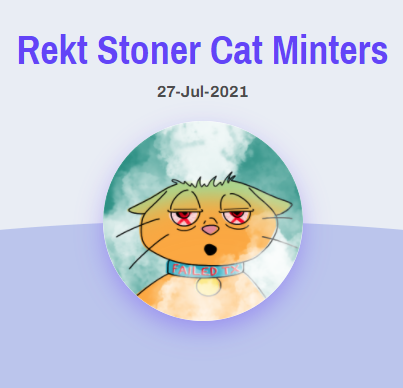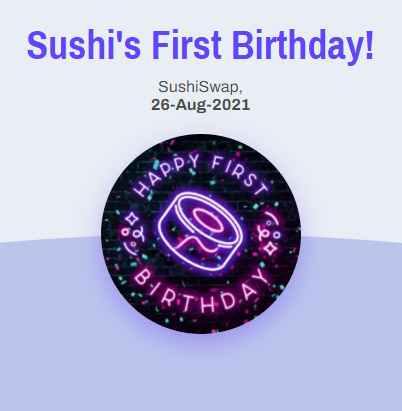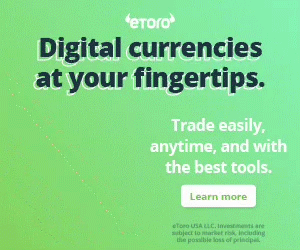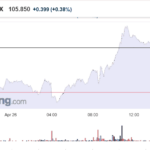
Key Takeaways
- POAPs are unique proof of attendance NFTs verified on the xDai sidechain.
- Many crypto communities have started giving out POAPs to engage with their members.
- POAP collections can also function as decentralized identities, unlocking new possibilities for their use.
POAPs are unique NFT badges given out to attendees of both virtual and real-world events. While POAPs can be used to keep a record of your life experiences, others envision a future where POAPs play a much bigger role in the digital economy.
POAPs Explained
POAP (pronounced poh-ap) is an acronym for Proof of Attendance Protocol. These NFT badges are given out to prove attendance of an event, whether it took place virtually or in the real world. Each badge is unique, meaning that the only way to get a certain POAP is to be at the event. Collectors can quickly accumulate a unique collection of POAPs which documents their experiences and travels through the crypto space.
All POAPs are created with the ERC-721 standard used for NFTs. However, for an NFT to be classed as a POAP, it needs to meet a certain set of criteria. First, it must be minted through the official POAP smart contract. Second, it needs to contain metadata related to a specific time or date, up to one year in length. Finally, all POAPs must have an image associated with them.
While POAPs were originally minted on the Ethereum main net, since in October 2020, POAPs have been created and distributed on the Ethereum sidechain xDai. Since xDai is designed for fast, inexpensive transactions, POAPs can be minted by issuers for very little cost. As such, POAPs are usually distributed for free to whoever is eligible to claim them.
POAPs can also be migrated from xDai to Ethereum if the user pays the gas fee to do so. However, due to high fees on Ethereum, most users opt to leave their POAPs on xDai where they can view them on the POAP app. Although POAPs look to remain on xDai for the foreseeable future, Ethereum co-founder Vitalik Buterin has hinted that they could be hosted on optimistic rollups in the future.
@poapxyz thoughts on being a very early user of optimistic rollups today?
— vitalik.eth (@VitalikButerin) August 13, 2020
So far, POAPs have been given out at over 100 Ethereum community events, such as EthGlobal, Dappcon, and the recent Ethereum Community Conference in Paris. Over 7000 POAPs were claimed across these events, creating a provable record of attendance stored on the blockchain.
Additionally, several online crypto communities are also using POAPs to engage with their members. DAOs such as SushiSwap and ShapeShift distribute badges to attendees of weekly community meetings, AMA participants, and voters on governance proposals. Elsewhere, popular metaverse game Decentraland regularly gives out POAPs to commemorate in-game events, such as the recent 10 million user party hosted by MetaMask.
Animated web series and NFT project Stoner Cats has also made use of POAPs. During the project’s launch, many people who tried to mint a Stoner Cat had their transactions fail due to a poorly written smart contract, costing users a combined $790,000 in gas fees. To compensate those affected, the Stoner Cats team gave out a limited Rekt Stoner Cats Minters POAP and refunded the gas fees of unsuccessful transactions.

While they’re certainly fun to collect, these blockchain badges may also have a greater untapped potential.
One example is that engagement and time spent in a community can be measured by the number of POAPs in a user’s wallet. Earlier this year, the Bankless DAO used POAPs to help allocate funds for its subscriber airdrop. The DAO decided to airdrop tokens to wallet addresses that had claimed Bankless POAPs in the past, with more POAPs equalling a larger share of the airdrop.
Other communities that issue POAPs are also working on incentives for collectors. SushiSwap has started introducing perks for POAP holders, such as the ability to draw faster on collaborative community artworks, which are then distributed to participants as fractionalized NFTs. While this may not seem like much compared to a full-blown token airdrop, the Sushi POAPs can be claimed by anyone attending its events, while the Bankless DAO only distributed its POAPs to paid subscribers.

By Viewing POAP collections as decentralized identities, users have identified practical applications for the blockchain badges. For example, SushiSwap AMA host 0xTangle has talked with members of the Sushi community about using POAPs as a kind of blockchain résumé. When hiring in the crypto space, employers can use an applicant’s POAP collection as a reliable record of their involvement in a community. This has a great deal of value when hiring people into self-governing, community-driven entities such as DAOs, which need to ensure everyone working in them is aligned with the organization’s goals.
The use of POAPs has grown steadily since the project launched its current version on xDai in October 2020. Users have only scratched the surface of possible uses for POAPs, with suggested applications such as social graphs and under collateralized loans yet to materialize. With limitless applications and a low barrier to entry, POAPs have the potential to help redefine identity in crypto.
Disclaimer: At the time of writing this feature, the author owned BTC, ETH, and several other cryptocurrencies.











